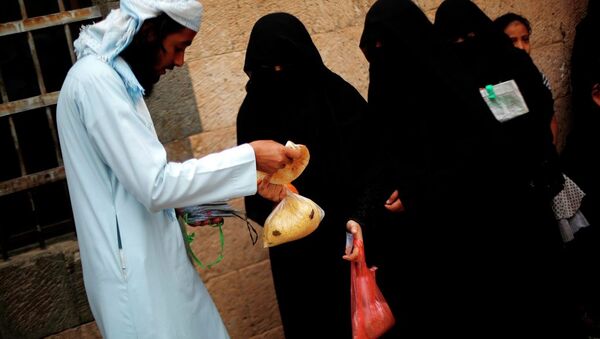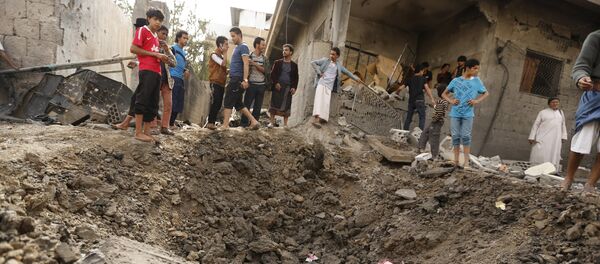An investigation carried out by humanitarian NGO Oxfam found that since fighting and the Saudi-led blockade of Yemen's ports in March began, 2.3 million people have been affected by food shortages — the equivalent of 25,000 people a day.
While conflict between warring parties and the Saudi-led bombing campaign has already killed many people in Yemen, there are growing concerns for the welfare of the country's surviving citizens, with a lack of adequate food, water, shelter and medical supplies exacerbating the effects of war for locals.
World continues to turn a blind eye on suffering of 21 million people in need of aid in #Yemen http://t.co/CoZ22su7fd pic.twitter.com/sf8SFkyAmi
— Oxfam International (@Oxfam) July 27, 2015
As the Arab world's most underdeveloped and poorest country, Yemen previously imported most of its food and had its own problems with poverty.
However, naval blockades — designed to stop the flow of weapons and supplies to Houthi rebel groups — have worsened existing issues.
Philippe Clerc, Oxfam Country Director in Yemen said: "Since the start of the conflict every day that goes by without a ceasefire and full resumption of imports sees nearly 25,000 additional people going hungry in Yemen.
"As the warring parties continue to ignore calls for a ceasefire, the average family in Yemen is left wondering when their next meal will be — if they survive the bombs, they're now running out of food."
The four-month war has claimed the lives of 3,700 people, with 1,700 of those civilians, according to UN figures.
Western Complicity
The Sunni coalition, led by Saudi Arabia and backed by the US and UK, started its bombing campaign against the Iran-backed Shia Houthi rebels in late March, after Yemen's internationally recognized President Abd Rabbuh Mansur Hadi, was forced to flee the country as a result of a Houthi coup.
#YemenCrisis: Coalition Airstrikes Decimate Community pic.twitter.com/i0khikSFOC
— Human Rights Watch (@hrw) July 28, 2015
Despite not taking part in direct fighting, British defense minister Earl Howe confirmed that the UK was providing arms to Saudi Arabia, which are being used in the conflict.
"We are not participating directly in Saudi-led military operations in Yemen, but we are providing technical support, precision-guided weapons and exchanging information with the Saudi Arabian armed forces through pre-existing arrangements," he said in a written statement to parliament.
"We have a small number of liaison personnel in Saudi and coalition air and maritime headquarters. This includes personnel in the maritime coalition co-ordination center in the region supporting the delivery of humanitarian aid into Yemen."
The US is offering similar support to the Saudis in the campaign, which has led to suggestions that the West must take responsibility for the devastating impacts of the conflict, and must be held accountable for the toll on civilians.
Oxfam's Philippe Clerc urged various influential nations to work harder to negotiate a peace agreement in the country, and stop the suffering of civilians.
"The US, UK and Iran should use their influence over warring parties to bring about an end to the conflict. Should the world continue to turn a blind eye to the suffering of over 21 million people in need of humanitarian assistance, it is tantamount to complicity in their suffering."
Before the recent conflict, Yemen had the second-highest rate of malnutrition in the world; with Oxfam saying that the latest increase means the country has the highest ever recorded number of people living in hunger.



